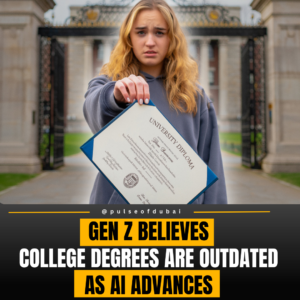In a bold and thought-provoking statement, Bill Gates has predicted that artificial intelligence (AI) could replace doctors and teachers within the next 10 years. This declaration from one of the world’s leading tech visionaries has sparked global debate about the potential transformation of essential human roles by machines. Gates suggests that the advancement of AI will not only streamline services but also offer highly personalized, cost-effective solutions in healthcare and education. Imagine AI-powered platforms diagnosing illnesses with pinpoint accuracy or tailoring lessons to individual student needs in real-time—this is the future Gates envisions.
While AI has already made significant strides—such as chatbots answering health queries, virtual tutors assisting students, and diagnostic tools supporting doctors—replacing human professionals entirely is a much more complex issue. In medicine, empathy, ethical decision-making, and the ability to handle unforeseen complications are crucial traits that machines currently struggle to replicate. Similarly, in education, teachers do more than deliver knowledge—they inspire, mentor, and emotionally support students, especially in diverse classroom settings.
Still, Gates believes the potential of AI to democratize access to healthcare and quality education is too powerful to ignore. In underserved regions, where doctors and trained teachers are scarce, AI could offer life-saving support and learning opportunities. However, this future also demands rigorous discussion about data privacy, bias in algorithms, digital access, and ethical boundaries.
The question remains: Are we ready for this shift? Preparing for an AI-driven future means more than just developing better machines—it requires reshaping policies, education systems, and societal expectations. As Gates implies, the next decade could bring unprecedented change. If harnessed responsibly, AI might not “replace” humans but rather empower professionals to work smarter, reaching more people than ever before. But without proper planning and safeguards, we risk losing the irreplaceable human touch in two of our most vital professions. The clock is ticking, and how we choose to integrate AI now will determine the quality of life for future generations.








